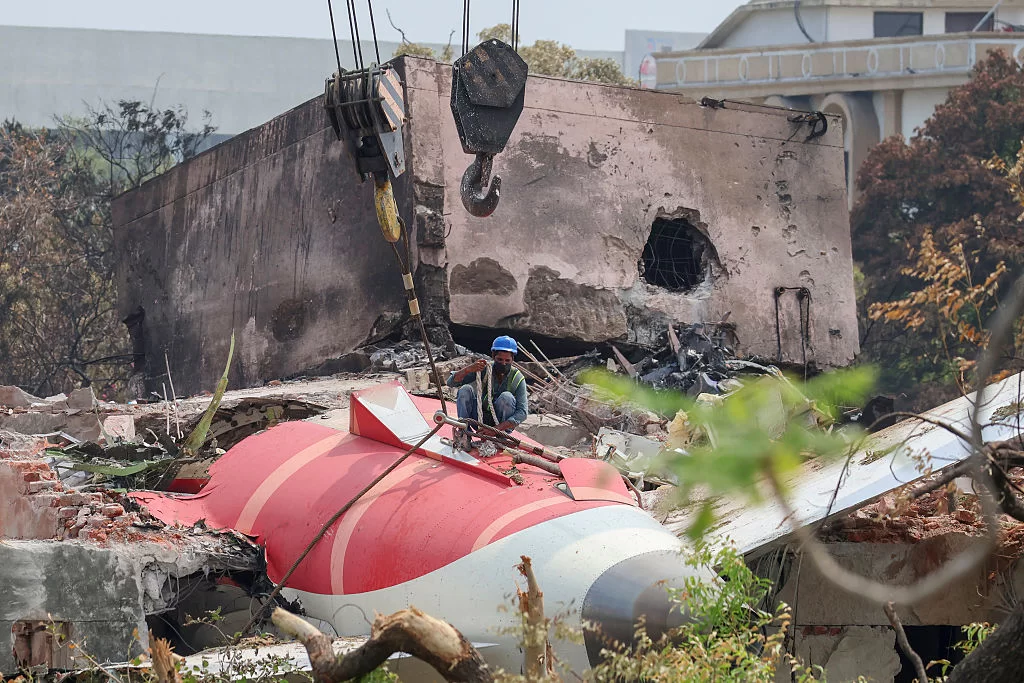- Tuesday, June 17, 2025
The deadly crash of Air India Flight AI-171 has left 271 dead and triggered an unprecedented $475 million insurance claim, with global reinsurers bracing for the fallout as investigators probe possible engine failure.

By: Vibhuti Pathak
On June 12, 2025, an Air India Boeing 787 Dreamliner (Flight AI-171) crashed just seconds after takeoff from Ahmedabad’s Sardar Vallabhbhai Patel International Airport, resulting in the deaths of 241 of the 242 people on board.
The flight, bound for London’s Gatwick Airport, carried 230 passengers and 12 crew members, including nationals from India, the UK, Portugal, and Canada.
The crash site, a densely populated residential area near the airport, also claimed around 30 lives on the ground as the aircraft struck a hostel building at B.J. Medical College.
Unprecedented Insurance Claim
The tragedy is set to become one of the costliest in Indian aviation history, with insurance claims estimated at $475 million, or approximately ₹4,080 crore, according to Bloomberg.
“This aviation insurance claim could be one of the biggest in India’s history,” said Ramaswamy Narayanan, chairman and managing director at General Insurance Corporation of India, one of the insurers covering Air India.
Breaking down the estimated claim, Narayanan explained, “Out of $475 million, around $125 million or ₹1,075 crore is estimated to be that for the aircraft hull and engine and the rest $350 million, or ₹3,014 crore, for the additional liability claims for loss of life for passengers and others.”
He added that the hull claim would be settled first, while liability claims for loss of life would take more time.
Global Impact and Rising Premiums
The sheer scale of the claim is significant: it is over three times the total insurance premiums paid by the Indian aviation sector in 2023. The financial burden of this tragedy is expected to ripple through the global aviation insurance and reinsurance markets.
Industry experts warn that insurance premiums for Indian airlines are likely to rise, either immediately or upon policy renewal, as a direct consequence of the crash and the resulting claims.
For Air India, the total insurance payout could increase further, as several victims were foreign nationals. In such cases, compensation is calculated according to the laws of the victims’ home countries, which can push liability costs even higher.
Most of the Burden on Global Reinsurers
Despite the magnitude of the claim, Indian insurance companies are expected to bear only a small portion of the financial burden. According to GlobalData, Indian insurers have offloaded over 95 per cent of their aviation insurance direct written premium (DWP) to global reinsurers.
“The financial burden will predominantly fall on international reinsurers, leading to the hardening of the aviation reinsurance and insurance market,” said Swarup Kumar Sahoor, senior insurance analyst at GlobalData.
The Human and Economic Toll
The crash has sent shockwaves not only across India but around the world, as many victims were foreign nationals. The aftermath has been marked by scenes of devastation: burning debris, thick black smoke, and frantic rescue efforts as fire engines and ambulances rushed to the scene.
“Thirty seconds after takeoff, there was an enormous noise, and then the airplane went down,” recounted the sole survivor, British national Vishwashkumar Ramesh, from his hospital bed. The aircraft’s tail section was found lodged atop the hostel building, and luggage was scattered across the crash site.
Investigation and Response
Authorities have launched a formal investigation, with the Directorate General of Civil Aviation (DGCA) and technical teams from Boeing expected to examine the cause of the crash. Initial reports and video footage suggest a possible engine failure, with the aircraft losing altitude rapidly after takeoff and crashing into the residential complex.
The heavy fuel load for the international route may have worsened the post-crash fire, complicating rescue operations.
Prime minister Narendra Modi and Civil Aviation minister Ram Mohan Naidu have taken stock of the situation, with emergency meetings and relief operations underway.
A Tragedy With Lasting Consequences
As the investigation continues and families mourn their loved ones, the financial repercussions of the Air India crash will likely reshape India’s aviation insurance landscape.
With most of the liability falling on global reinsurers, the event is expected to drive up costs and prompt a re-evaluation of risk in the industry—making it a defining moment in Indian and global aviation history.